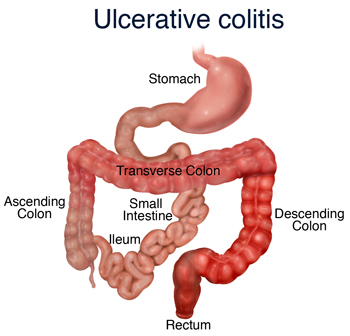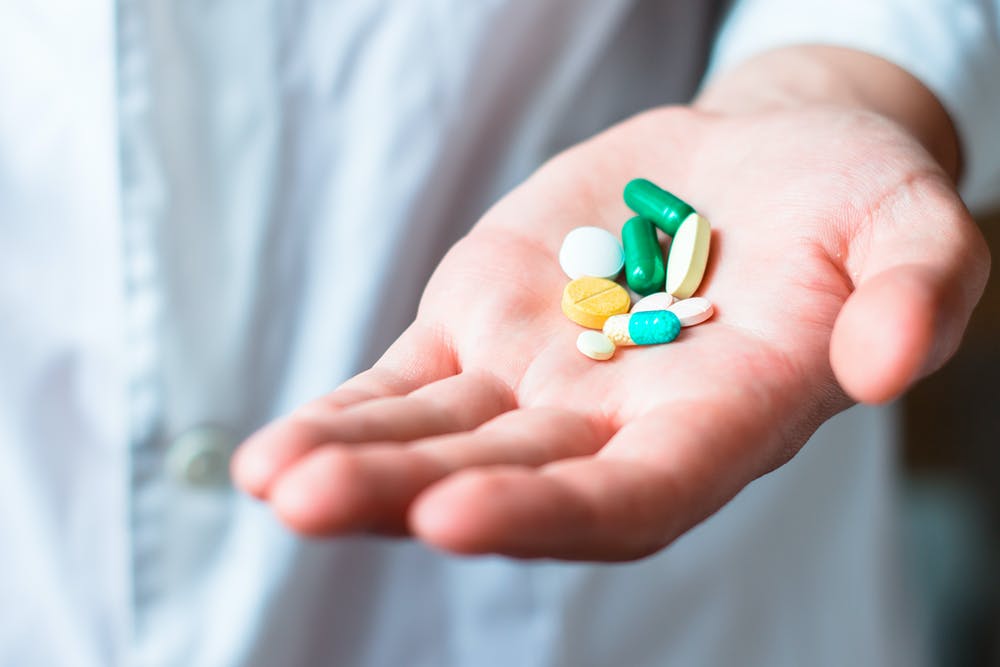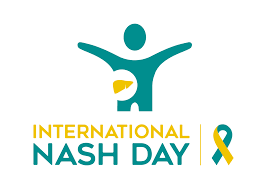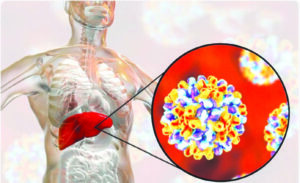According to well Known Gastroenterologist, Ulcerative Colitis (Inflammatory bowel disease is a spectrum of signs and symptoms and can be UC or Crohn’s Disease. Here we will give information about UC)
Ulcerative colitis is a condition that causes:
1} Diarrhea,
2} Tummy pain
3} Blood in stools.
These symptoms happen because the large intestine (colon) becomes inflammed and gets sores or ulcers.

What are the symptoms of Ulcerative Colitis?
Symptoms can be mild or severe and can happen after they are brought out by a simple bout of infective diarrhoea or such bouts have been mistaken for infections. Symptoms include :

– Diarrhea (in severe cases it can be10 or more times a day)
– Bloody stools
– Bleeding and mucous from the back passage
– Cramp like tummy pain.
– Fever (sometimes)
– Weight loss
– Swelling and pain in joints (sometimes)
– Redness and pain in the eyes (in some cases)
– Skin rash
– Ulcers or sores in your mouth
Tests for Ulcerative Colitis
Most of the gastroenterologist suggests that there are many tests that can help diagnose ulcerative colitis but the diagnostic test is a colonoscopy or endoscopic examination of the large bowel (colon). This entails a thin tube being introduced into a patient’s back passage to examine the mucosa of the large bowel through a camera attached to it.
Other tests include X-rays, scans and blood tests as necessary from the best practicing clinics near you.
Do dietary changes help?
There is no specific type of diet that has been proven to help people with ulcerative colitis, however, some people do notice that certain foods seem to make symptoms worse. If this is so, avoiding those foods for a while to see if you feel better is recommended eg. some people feel better if they avoid dairy foods like milk, yogurt, and cheese. – Medicines that you put directly into the back passage – These reduce swelling in mild cases and when the disease affects this part of the large bowel particularly. It takes about 3 to 4 weeks before they start working, says professional gastroenterologist.

Treatment of Ulcerative Colitis
– Medicines that are taken in as tablets
– In severe cases steroids help symptoms by reducing swelling. If a patient needs steroids repeatedly some other special medicines have to be considered. Steroids should not be used long term or repeatedly or without a doctor’s consultation.
– Medicines that work on the immune system are special medicines which help difficult patients but have to be monitored closely.

For most people, symptoms go away after just a few weeks of treatment but the treatment has to continue under the supervision of a doctor who is experienced in handling Inflammatory Bowel disease.
Do patients need surgery ?
Sometimes when medication has been ineffective or the patients’ response is poor, a surgical option has to be considered.
It is always better to consult the best gastroenterologist.



